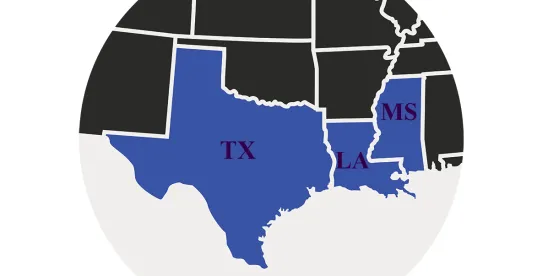| Go-To Guide: |
|
On Dec. 3, 2024, the U.S. District Court for the Eastern District of Texas issued an order temporarily suspending enforcement of the Corporate Transparency Act, 31 U.S.C. § 5336 and its implementing Reporting Rule, 31 C.F.R. § 1010.380 (collectively, the CTA), which require certain U.S. entities and foreign entities registered to do business in the United States (collectively, Reporting Companies) to submit beneficial ownership information (BOI) reports to the U.S. Department of the Treasury’s Financial Crimes Enforcement Network (FinCEN). In Texas Top Cop Shop, Inc., et al. v. Garland, et al.,1 the Court granted plaintiffs’ request for a preliminary injunction pending final resolution of the case, on the ground that the statute was likely unconstitutional.
Unlike NSBU v. Yellen,2 the similar Alabama district court decision that remains pending before the Eleventh Circuit, the Texas decision explicitly provides for nationwide relief, stating that “reporting companies need not comply with the CTA’s Jan. 1, 2025, BOI reporting deadline pending further order of the Court.”
The Case
Plaintiffs alleged the CTA represents an unconstitutional expansion of federal power, threatens privacy and associational interests, and violates individual rights. The U.S. government argued the CTA is intended to enhance federal agencies’ ability to protect the U.S. financial system from illicit use. The Court agreed with the plaintiffs, finding they were likely to prevail on their argument that the CTA exceeded Congress’ enumerated powers, declining to reach the other grounds for challenge.
The Court reserved a final ruling on the constitutionality of the CTA for another day. For now, it found plaintiffs met their burden to establish the four elements for issuance of a preliminary injunction. First, the Court found plaintiffs would suffer the “irreparable harm” of unrecoverable compliance and legal costs, as well as substantial threat to their constitutional rights, if the CTA remained in effect during the pendency of their lawsuit. Second, the Court determined plaintiffs had shown a substantial likelihood of success on the merits of their claim that the CTA exceeds Congress’ authority under the Commerce Clause and the Necessary and Proper Clause of the U.S. Constitution.3 Combining the third and fourth equitable factors and balancing the equities, the Court found a preliminary injunction would have limited effect on the government and would not harm the public. The Court therefore issued the extraordinary remedy of a nationwide preliminary injunction against the CTA and, in what may be considered a belts-and-suspenders procedural move, stayed the upcoming Jan. 1, 2025, compliance deadline pursuant to 5 U.S.C. § 705 of the Administrative Procedures Act.4 The Court considered and rejected the U.S. government’s argument that any relief should apply only to the plaintiffs in the case, instead ordering temporary relief “nationwide.”
Next Steps
The U.S. government has 60 days to appeal the injunction, and we expect that FinCEN will issue a statement or guidance regarding the injunction in the near future, similar to the statement it issued following the Alabama case. It remains to be seen how FinCEN will respond to this decision and how this development may interplay with any forthcoming Eleventh Circuit decision on the Alabama case, which raises similar legal issues. For now, and with the injunction in force, reporting companies are not required to report beneficial ownership information to FinCEN, but should continue to work through their analyses and forms to be prepared to comply with the CTA by the filing deadline in case the nationwide injunction is stayed, lifted, or otherwise made ineffective.





 />i
/>i

